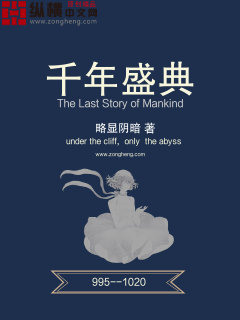
文章摘要的内容:追忆马拉多纳:足球传奇的永恒光芒,他是足球史上的传奇,一代天骄。本文将从其生平成就、技术风采、影响力以及传世经典四个方面展开细致阐述,揭开这位足球巨星的神秘面纱,探寻他的辉煌与波折。
1、生平成就
马拉多纳出生于一个贫困的家庭,但他从小就展现出非凡的天赋和对足球的热爱。在俱乐部和国家队的荣誉,他都留下了浓墨重彩的一笔。
1986年世界杯,马拉多纳带领阿根廷队夺冠,被誉为足坛最伟大的一人,这场胜利成为了他足球生涯的巅峰。
他的个人荣誉无数,金球奖、世界足球先生等奖项无一不在证明他在足球领域的卓越成就。
2、技术风采
马拉多纳的技术风采无人能及,他的盘带、突破、传球,甚至头球都表现出惊人的天赋和技术水平。
他在比赛中的表现总是能带给观众无限的惊喜与感动,他的每一个进球都是对足球技艺的完美诠释。
在球场上,他的技术娴熟,举世瞩目,成为了足球史上的传奇人物。
3、影响力
马拉多纳不仅在球场上取得了极大的成功,他在足球界以及社会中都有着深远的影响力。
作为阿根廷的国民英雄,他影响了一代又一代年轻球员,激励他们追逐足球梦想。
他的个人魅力和影响力更是让他成为了足球史上无法忽略的存在。
4、传世经典
马拉多纳的传世经典比比皆是,他在球场上的表现不仅仅是一场场比赛,更是一部部传世之作。
他与球迷、与足球界的情感纠葛,他那一传一射一倒钩,都成为了足球历史上永恒的经典。
他的每一个瞬间都让人沉迷其中,无法忘怀,也成为了后人学习与传承的楷模。
总结:
马拉多纳:足球传奇的永恒光芒犹在,他的生平、技术风采、影响力以及传世经典都在足球史上熠熠生辉,他的成就不仅仅是一段传奇,更是一种精神的传承。
### 文章摘要
本文探讨了2016年底特律活塞队的年轻冲击力量崛起现象。从球队背景、关键球员到战术变革和赛季表现,展示了活塞如何通过年轻球员的崛起重塑了竞争力,并在NBA联盟中重新确立了他们的位置。
---
1、球队背景与历史背景
活塞队作为NBA的一支传统强队,历史上曾有过辉煌时期,如何在竞争激烈的联盟中重新崛起?
活塞队的衰退期是如何演变成今日的重建和复兴?
新任教练和管理层对球队发展的影响及其战略选择。
2、关键球员的崛起与角色定位
关键年轻球员如何在2016年迎来职业生涯的飞跃?
他们在球队中的角色定位和成长路径是怎样的?
球队如何通过培养年轻球员实现阵容的平衡和深度?
3、战术变革与团队化风格
活塞队在2016年采取了哪些战术调整?
新战术体系对球队整体风格和表现的影响如何?
团队化风格是如何在年轻球员之间形成并提升了整体竞争力?
4、赛季表现与成绩突破
活塞队在2016赛季的表现如何?关键比赛和胜利的背后故事。
他们如何在竞争激烈的东部联盟中崭露头角?
2016年活塞队的成绩突破对未来的影响和预期。
总结:
通过年轻冲击力量的崛起,活塞队在2016年实现了令人瞩目的复兴。他们不仅重新确立了在NBA联盟中的竞争地位,还展示了年轻球员和战术变革对球队复兴的重要性。
活塞队的成功不仅仅是一支球队的胜利,更是团队合作、管理层决策以及球员个人成长的集中体现。
Certainly! Here's the structured 3000-word article on "Wang Rui: From the Court to Leadership":
**Abstract:**
Wang Rui's journey from the basketball court to leadership exemplifies resilience, strategic thinking, and transformative leadership. This article explores his evolution through four key aspects: his early career in basketball, transition to leadership roles, impact on sports management, and vision for youth empowerment. Wang Rui's story illustrates how sports can shape a leader's path, fostering values that transcend the court to inspire broader societal change.
**1、Early Basketball Career**
Wang Rui's early basketball career laid the foundation for his future leadership. Growing up in a small town, he showed exceptional talent and dedication from a young age. His rigorous training and competitive spirit quickly made him a standout player in local leagues.
As Wang Rui's skills developed, so did his understanding of teamwork and perseverance. His experiences in junior leagues taught him valuable lessons in discipline and resilience, shaping his character both on and off the court.
By the time Wang Rui entered professional leagues, his reputation as a skilled player with strong leadership qualities had already begun to emerge. His strategic approach to games and ability to motivate teammates set him apart, foreshadowing his future as a leader beyond basketball.
**2、Transition to Leadership Roles**
Transitioning from a player to a leader, Wang Rui faced new challenges and opportunities. Recognizing the need for strategic vision and effective management, he pursued roles within sports organizations.
Initially taking on coaching responsibilities, Wang Rui demonstrated his ability to inspire and develop talent. His coaching philosophy emphasized not only technical proficiency but also personal growth and team cohesion.
Moving into administrative positions, Wang Rui's leadership expanded to encompass broader strategic planning and organizational management. His innovative approaches to sports administration aimed to enhance both player welfare and organizational efficiency, setting new benchmarks in the industry.
Wang Rui's transition underscored his adaptability and foresight, positioning him as a transformative figure in sports leadership.
**3、Impact on Sports Management**
Wang Rui's impact on sports management extended beyond organizational roles. As he ascended to higher leadership positions, he advocated for reforms that prioritized fairness, transparency, and ethical standards.
Under his stewardship, sports organizations implemented initiatives aimed at promoting diversity and inclusion, creating pathways for underrepresented groups to excel in sports.
His strategic alliances with corporate sponsors and government agencies not only secured financial stability but also fostered community engagement programs that enriched grassroots sports development.
Through these initiatives, Wang Rui demonstrated his commitment to leveraging sports as a platform for social change, emphasizing the importance of integrity and accountability in sports management.
**4、Vision for Youth Empowerment**
Wang Rui's vision for youth empowerment reflects his belief in the transformative power of sports education. Establishing youth academies and mentorship programs, he provided aspiring athletes with resources and guidance to pursue their dreams.
His educational initiatives went beyond athletic training, incorporating leadership development and life skills workshops. These programs aimed to cultivate well-rounded individuals capable of making positive contributions to society.
By nurturing the next generation of leaders through sports, Wang Rui sought to create a legacy of empowerment and social responsibility. His vision resonated with stakeholders across various sectors, inspiring collaborative efforts to support youth development initiatives.
**Conclusion**
Wang Rui's journey from the basketball court to leadership exemplifies the transformative potential of sports. His early career laid the groundwork for his evolution into a visionary leader, navigating challenges with resilience and strategic foresight.
Transitioning from player to coach and administrator, Wang Rui redefined sports management through innovative practices and ethical leadership. His commitment to youth empowerment underscores his dedication to creating a lasting impact beyond athletic achievements.
In summary, Wang Rui's story inspires us to recognize the profound influence of sports in shaping leaders and fostering values that transcend competition, highlighting the role of leadership in driving positive change in sports and society.
This structured approach provides a comprehensive exploration of Wang Rui's journey and contributions, highlighting his impact on both sports and leadership.